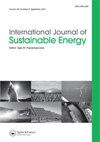海岛旅游碳排放与资源可持续开发的耦合研究——以海南分界岛为例
IF 2.7
Q4 ENERGY & FUELS
引用次数: 0
摘要
汾界岛,作为一个孤岛,已经发展成为5a级旅游目的地。但近年来,由于片面追求经济利益,岛内旅游资源不断开发,导致资源过度开发,生态影响显著。这项研究仔细审查了与旅游业相关的碳排放,并将其与该岛的自然能力进行了比较。综合研究跨越船舶、住宿、餐饮和各种活动,揭示了超越自然极限的排放。该研究深入研究了复杂的排放模型,重点研究了能源密集型行业。实证研究结果强调了一个紧迫的差距:日排放量远远超过了岛屿的吸收和净化能力,强调了干预的紧迫性。为了恢复平衡,该研究建议重新调整旅游业,使其与该岛的自然资源保持一致。森林和海水容量成为衡量可持续旅游人数的重要基准。提出的战略强调严格的节能减排,为可持续发展提供了路线图。这些有力的发现为分节岛的未来提供了重要的科学依据。它们阐明了一条通往平衡增长的道路,这对于协调经济繁荣和环境保护至关重要。通过这项研究,政策制定者可以引导岛屿的发展轨迹,确保在现代旅游业的挑战中实现可持续的繁荣未来。本文章由计算机程序翻译,如有差异,请以英文原文为准。
Coupling of island tourism carbon emission and sustainable resource development – taking Hainan Fenjie Island as an example
Fenjie Island, as an isolated island, has evolved into a 5A-rated tourist destination. However, in recent years, due to the one-sided pursuit of economic gains, the island has continuously developed its tourism resources, resulting in over-exploitation of resources and significant ecological impacts. This study meticulously scrutinizes tourism-related carbon emissions in comparison to the island's natural capacities. Comprehensive research spans ships, accommodations, dining, and various activities, revealing emissions surpassing nature's limits. The study delves into intricate emission models, emphasizing energy-intensive sectors.Empirical findings underscore a pressing disparity: daily emissions far exceed the island's absorption and purification capacities, underscoring the urgency for intervention. To restore equilibrium, the study proposes recalibrating tourism by aligning it with the island's natural resources. Forest and seawater capacities emerge as vital benchmarks for sustainable tourist numbers. Proposed strategies emphasize rigorous energy conservation and emissions reduction, offering a roadmap for sustainable development.These robust findings provide an essential scientific basis for Fenjie Island's future. They illuminate a path toward balanced growth, crucial for harmonizing economic prosperity and environmental preservation. Informed by this research, policymakers can steer the island's trajectory, ensuring a sustainable, thriving future amidst the challenges of modern tourism..
求助全文
通过发布文献求助,成功后即可免费获取论文全文。
去求助
来源期刊

International Journal of Sustainable Energy
ENERGY & FUELS-
CiteScore
5.70
自引率
3.20%
发文量
52
期刊介绍:
Engineering and sustainable development are intrinsically linked. All capital plant and every consumable product depends on an engineering input through design, manufacture and operation, if not for the product itself then for the equipment required to process and transport the raw materials and the final product. Many aspects of sustainable development depend directly on appropriate and timely actions by engineers. Engineering is an extended process of analysis, synthesis, evaluation and execution and, therefore, it is argued that engineers must be involved from the outset of any proposal to develop sustainable solutions. Engineering embraces many disciplines and truly sustainable solutions are usually inter-disciplinary in nature.
 求助内容:
求助内容: 应助结果提醒方式:
应助结果提醒方式:


